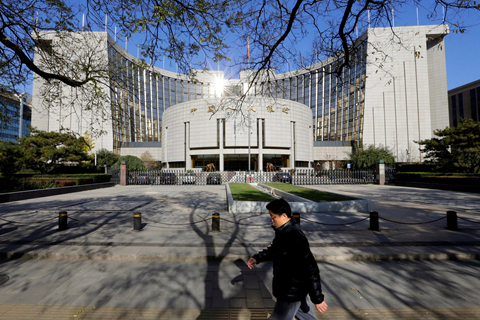Central Bank to Launch Swap Mechanism for Perpetual Bonds

China’s central bank plans to create a mechanism to encourage banks to replenish their capital by issuing perpetual bonds, or debt instruments that have no fixed maturity date.
The People’s Bank of China will set up a central bank bills swap (CBS) system under which qualified banks can temporarily trade their perpetual bonds for central bank bills, improving the liquidity of the perpetual bonds, the People’s Bank of China said Thursday in a statement on its website. Central bank bills are a tool used by the central bank to implement monetary policy through open-market operations.
The CBS will be conducted on the open market through a fixed-rate bidding process with open market operation primary dealers. The central bank will swap its bills for banks’ perpetual bonds held by the primary dealers that win the bidding. On the maturity date of the swap agreements, the PBOC and the primary dealers will reverse the exchange of bonds for central bank bills, the PBOC said.
Swap agreements will normally be for no more than three years. The central bank bills cannot be used for spot bond trading or outright bond repurchases but can be used as collateral for financial institutions participating in the central bank’s monetary policy operations, the PBOC said.
The CBS will accept perpetual bonds issued by banks that meet certain conditions: a capital adequacy ratio of no less than 8%, a nonperforming loan ratio of no more than 5%, profitability in the most recent three years and assets of at least 200 billion yuan, according to the statement.
The swaps will not involve base currency flow and thus will have a neutral impact on liquidity of the banking system, the central bank said.
Creation of the CBS system doesn’t mean the central bank will directly buy perpetual bonds from banks, said Zeng Gang, a researcher with the Institute of Finance and Banking of the Chinese Academy of Social Sciences. Rather, it will provide an exit and swap mechanism for perpetual bonds,
Bank of China won approval last week to become the nation’s first issuer of perpetual bonds with a plan to sell as much as 40 billion yuan ($5.8 billion) of them.
Lacking a set maturity period, perpetual bonds can make interest payments to investors forever if needed. Approval of such bonds is intended to tackle the challenge facing China’s four global systemically important banks (G-SIBs), including Bank of China, in meeting capital requirements for absorbing losses.
Ming Ming, head of fixed-income research at Citic Securities Co., said he expects a large supply of perpetual bonds. Many financial institutions will want to hold these bonds, but if they stay on banks’ balance sheets, they will soak up banks’ liquidity, so the swaps system is necessary to maintain liquidity around perpetual bonds, Ming said
Zeng at Chinese Academy of Social Sciences said he expects enthusiastic demand for banks’ perpetual bonds. Institutions may want to hold such bonds for the long term, so market demand for the CBS may not be particularly strong, he said.
Shortly after the central bank’s announcement, China’s top banking and insurance regulator said it will allow insurance companies to invest in perpetual bonds and Tier 2 capital bonds issued by certain banks to bolster the banking industry’s capital and diversify insurance funds’ investment portfolios.

- 1Cover Story: China Carves Out a Narrow Path for Offshore Asset Tokenization
- 2Drownings Shake Chinese Enthusiasm for Travel to Russia
- 3China Business Uncovered Podcast: A $15 Billion Bitcoin Seizure and the Fall of a Cybercrime Kingpin
- 4Over Half of China’s Provinces Cut Revenue Targets
- 5Li Ka-Shing’s Port Empire Hit by Forced Takeover Amid Panama Legal Dispute
- 1Power To The People: Pintec Serves A Booming Consumer Class
- 2Largest hotel group in Europe accepts UnionPay
- 3UnionPay mobile QuickPass debuts in Hong Kong
- 4UnionPay International launches premium catering privilege U Dining Collection
- 5UnionPay International’s U Plan has covered over 1600 stores overseas






